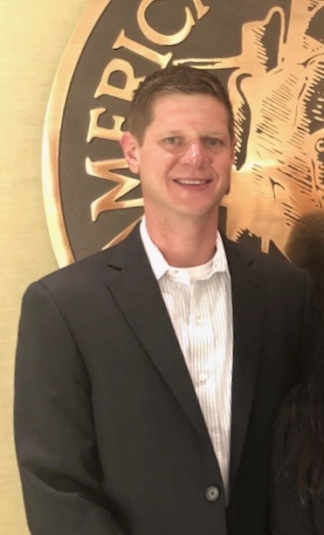Chair of the Early Career Professional Council at the American College of Cardiology Interventional Cardiologist, Ross Heart Hospital, The Ohio State University, Columbus, Ohio, USA
![]()
Written by Rachel Donnison | Editorial Assistant, EMG-Health
![]()
Q: What are some points of emphasis you incorporate into practice to be the best interventional cardiologist you can be?
A: This job requires a lot of focus, and an ability to be ‘in the moment’ despite a number of things going on around you. It is also necessary to remember that the patient you are seeing has not often (or ever) experienced their medical situation before, so individualising your approach and being empathetic to the patient experience is essential.
Q: What are your hopes for the impact of your recent paper, ‘The Imperative of Addressing Clinician Well-Being,’ on the medical community?
A: As physicians we have personality traits that favour benevolence, service, and going beyond oneself to help those around you. It is easy to get caught up in what you are doing for the community and the hospital and in the process neglect your own wellbeing. I’m hoping this paper adds to the growing literature that emphasises the importance of physician wellbeing, not only for ourselves but for the good of our communities.
Q: Transcatheter aortic valve replacement is a specialism of yours. What are the most important functions this technique can and cannot facilitate?
A:This technique allows a heart valve replacement without the need for open heart surgery. Patients recover faster, are often sitting in a chair or walking the same day, and usually return home in less than 3 days. It has been transformative and had an impact on how we practice medicine in heart hospitals. Newer therapies, to fix other valve problems, are forthcoming.
Q: Originally, you became involved with the American College of Cardiology (ACC) as a Fellow in Training (FIT). What is the value of being a FIT?
A: As a fellow the College represented a community outside of my training institution where I could learn from peers, take advantage of opportunities, and establish leadership skills. It has been a consistent and incredible dimension to my clinical practice, and the value of this type of engagement is hard to over-state.
Q: Previously, you have mentored FIT cardiologists. What is the most important lesson you aim to teach them as they begin their careers?
A: I try and emphasise that trainees create something that parallels, but exists outside of, their direct clinical expertise. This could be education, society engagement, advocacy; something that allows them to flex the other side of their brain, but not so far afield that it isn’t relevant to their professional development.
Q: As Chair of the ACC Early Career Professional Council, what do your duties entail?
A: Our primary role is to represent the needs and perspectives of early career professionals to the College, and ensure relevant initiatives are supported. We also strive to facilitate engagement of early career professionals into broader committees and councils, so that leadership and professional development opportunities are available to our section.
Q: What projects are on the horizon for the Early Career Professional Council in 2020?
A: We are embarking on a broader international effort to connect with early career cardiologists across the globe. We are also identifying and expressing the wellness needs of our section to the College, so that interventions specific to early career professionals can be developed. Lastly, we have ongoing efforts to identify gaps in non-clinical competencies salient to our member section, and to create tools to fill those gaps.
Q: How much have the roles you have fulfilled within the ACC helped you inside and outside of clinical practice?
A: The ACC is a community of professionals that has a wide variety of perspectives and expertise. It helps to bounce ideas and clinical conundrums off peers, as well as to discuss professional development. In my view, the ACC is the best forum for this in all of cardiology.
Q: Finally, do you have any long-term goals in your cardiology career?
A: At this point my plate is full. I’m working hard on the Wellness Initiatives for the ACC, and would like to help find creative ways to improve the overall wellbeing of our ranks. From a clinical perspective, I enjoy clinical trials and assisting in the transition of technologies from bench to clinical utilisation. I anticipate my long-term activities will feature a greater effort in that space.









